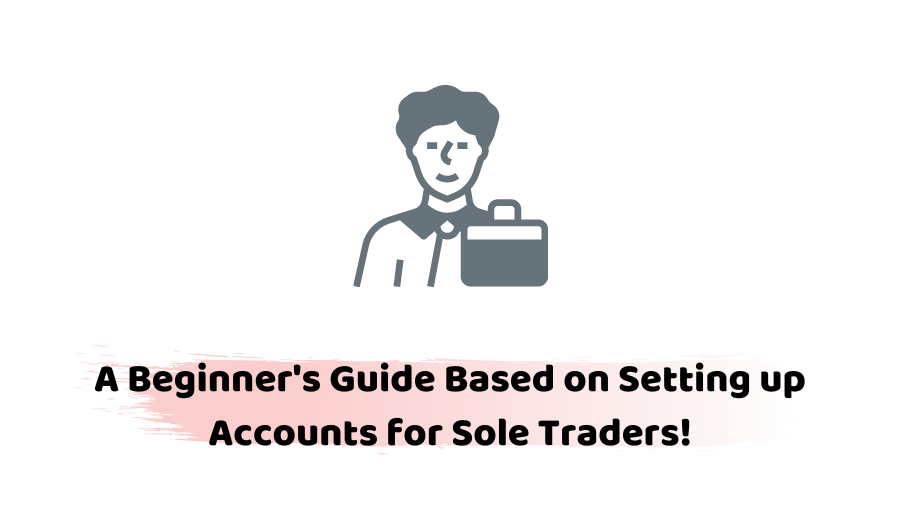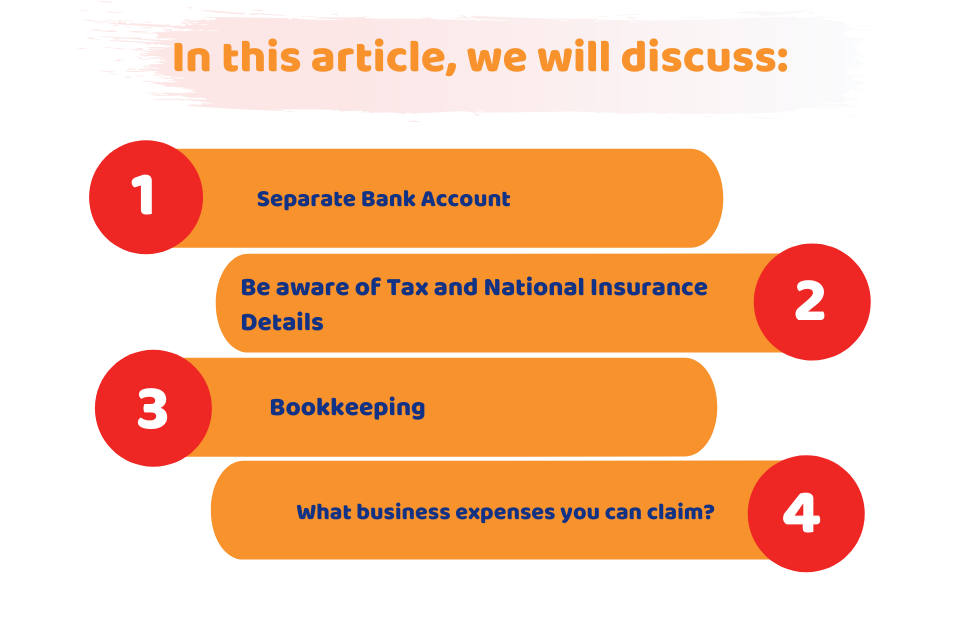If you intend to associate yourself with self-employment or trading as a sole trader, the most important process you need to learn is to record your income and expenses. Here comes the need to set up your accounts. To set up sole trader accounts, be vigilantly aware of factors like national insurance and tax that can directly affect your records.
Further, in this article, we will discuss the points that will help you to understand how to do bookkeeping seamlessly and a low-down to set up sole trader accounts. The details include the following:
- Separate Bank Account
- Be aware of Tax and National Insurance Details
- Bookkeeping
- What business expenses you can claim?
Interested in ACCOTAX – Accountants in London? Why not speak to one of our qualified accountants? Give us a call on 02034411258 or request a callback. We are available from 9:00 am – 05:30 pm Monday to Friday.
Separate Bank Account:
The business entity and a sole trader are not legally separate from each other in terms of their existence. This is why it is not a legal requirement to have a separate bank account. However, there are several benefits to keep a separate account that can help to channelise many details and other factors in your business. Keeping a personal account separate from a business account will give you a clear picture of your business finances as a sole trader.
It becomes challenging to draw a line between your personal expenses and business expenses, in case you are maintaining one account. This will confuse you to know your business activity clearly. This is time-consuming and will affect your income and expenses records. Some other facts that make separate accounts advantageous for the sole traders include the following:
- Business Income and expenses will be easily recorded.
- It will be less time-consuming for you to prepare your tax returns and annual accounts.
- Setting up a new bank account also gives free transfers for a year.
Looking for all-inclusive monthly packages? Let us take care of your affairs so that you can focus on your business.
Be Aware of Tax and National Insurance Details:
It is important for a sole trader to be aware of tax and national insurance. This will help to have a better idea of how much amount is required to keep aside for this purpose. The personal allowance is given to every individual on taxable income.
The good news is that you don’t have to pay tax on it. In 2020-2021, the standard personal allowance amount is 12, 570 pounds.
Bookkeeping:
As a sole trader, the target of bookkeeping is minimal in comparison to limited companies. However, tracking monthly business expenses and income is equally important. Knowing and recording all the receipts and invoices is the wise suggestion here.
Keep a maintained record of bills, transactions and other invoices will help you in the process. You might work from home or from the capacity of your office, but these bills and rent amounts can be claimed back from HMRC as your business expenses. There are several options of accounting software that allow you to maintain records painlessly. These softwares are popular among small businesses and are more accurate than manual records.
Features like automatic recording and generating invoices can save a lot of your time and energy. Also, this allows avoiding duplication. Out of a wide range of accounting software, you can choose that is the most suitable to the type of business you carry out.
Get an instant quote based on your requirements online in under 2 minutes, Sign up online or request a callback.
What Business Expenses You Can Claim?
There are several business expenses that you can claim back from HMRC. Some of them are listed below for you.
- Travelling for the purpose of business meetings
- Telephonic expenses
- Money spent on advertising
- Bank charges
- Stationary used for the business activity
- Rent of your office
- Heating and lighting bills
- Office equipment
The Bottom Line:
Now that you know how to set up sole trader accounts, we can sum up the discussion by saying that to channelise business details and invest your time more on business valuation is only possible if you learn to keep your accounts. We hope this article helped to develop a better understanding.
Can’t find what you are looking for? why not speak to one of our experts and see how we can help you are looking for.
Disclaimer: This article intends to provide general information based on how to set up sole trader accounts.






















































